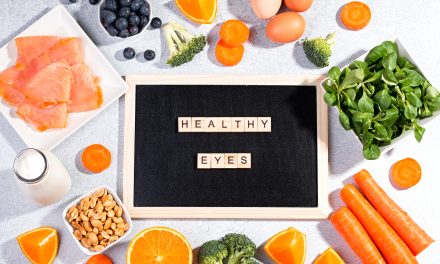The market for eyesight supplements has surged with claims that these products can protect against vision loss and improve eye health. Many such supplements contain vitamins, minerals, and antioxidants, each with purported benefits to ocular well-being. Consumers seeking to preserve their eyesight or combat the progression of eye-related conditions are often left with the question of whether these supplements genuinely work.
As we age, the risk of developing eye conditions like age-related macular degeneration (AMD) increases, spurring interest in preventative strategies, including nutritional supplements. While some scientific studies, such as the Age-Related Eye Disease Studies (AREDS and AREDS2), have found that certain nutrient combinations might slow the progression of AMD in people at high risk, the effectiveness of supplements for the general population remains less clear. The importance of a balanced diet rich in specific nutrients for maintaining eye health underlines the complexity of the relationship between nutrition and eyesight.
Key Takeaways
- Eyesight supplements contain various nutrients purported to support eye health.
- Scientific evidence supports the effectiveness of certain supplements for specific conditions, like AMD.
- A well-rounded diet and lifestyle choices play significant roles in the eyes’ overall health.
Understanding Eye Health and Nutrition
Eye health significantly depends on adequate nutrition, particularly the intake of specific vitamins, minerals, and antioxidants known to support vision. This section explores these nutrients’ critical role and the dietary sources from which they can be obtained.
Role of Nutrients in Eye Health
Nutrients such as vitamins A, C, and E, and the carotenoids lutein and zeaxanthin are essential for maintaining eye health. They possess antioxidant properties that help protect the eyes from oxidative stress, which can lead to conditions like age-related macular degeneration and cataracts. Omega-3 fatty acids, found in fish, also contribute to proper visual development and the retina’s health.
- Vitamins: Support the functioning of the retina and may help prevent age-related damage.
- Antioxidants: Battle oxidative stress that can harm eye cells.
- Omega-3 Fatty Acids: Essential for cellular health in the retina and may reduce the risk of dry eye syndrome.
Dietary Sources of Eye-Healthy Nutrients
Incorporating a variety of vegetables, fruits, whole grains, nuts, and seeds into one’s diet is beneficial to obtain these eye-healthy nutrients. Brightly colored vegetables and fruits often contain the highest antioxidants and essential vitamins.
- Vegetables: Kale, spinach, and other leafy greens are rich in lutein and zeaxanthin.
- Fish: Salmon, mackerel, and tuna are excellent sources of omega-3 fatty acids.
- Fruits: Oranges and berries provide a good amount of vitamin C.
- Nuts and Seeds: Almonds, flaxseeds, and chia seeds are high in vitamin E and omega-3s.
- Whole Grains: Contain vitamin E, zinc, and niacin, which can contribute to eye health.
Effectiveness of Eye Supplements
The effectiveness of eye supplements is often debated, but certain ingredients have been studied extensively. These components, such as antioxidants, lutein, and omega-3 acids, are central to the discussion on whether supplements can genuinely support eye health, particularly for conditions like age-related macular degeneration and cataracts.
Review of Major Eye Health Supplements
A myriad of eye health supplements claim to improve vision and protect against eye diseases. Key ingredients that are frequently mentioned include:
- Antioxidants: Help defend against damage from free radicals.
- Lutein and Zeaxanthin: Two carotenoids present in the retina, known to filter harmful blue light.
- Omega-3 Fatty Acids: Essential fats that play a role in cell membrane health in the retina.
Products like the AREDS and AREDS2 supplements are specially formulated based on extensive research targeting age-related macular degeneration (AMD). These formulations typically include a mix of vitamins C and E, lutein, zeaxanthin, zinc, and copper.
Leading brands have been compared and evaluated, with some standing out for their high quality.
Scientific Evidence and Studies
When examining the scientific evidence, researchers have concentrated on large-scale studies, such as the Age-Related Eye Disease Studies (AREDS and AREDS2). These studies focused primarily on age-related macular degeneration and cataracts, have shown that a specific blend of vitamins and minerals may slow the progression of these conditions.
For instance, the AREDS2 study, a follow-up to the original AREDS research, confirmed that a formula consisting of vitamin C, vitamin E, lutein, zeaxanthin, zinc, and omega-3 fatty acids could reduce the risk of AMD progression by up to 25% when taken daily. Details on this study can be found in a comprehensive review by health experts.
However, it is essential to acknowledge that supplements are generally recommended for people at high risk of these conditions or those who already show early signs. For the general population, there is insufficient evidence to suggest a broad benefit for eye health or the prevention of eye diseases. Health professionals emphasize a balanced diet over supplements for maintaining eye health, as noted in advice from organizations like the Cleveland Clinic.
Specific Nutrients and Eye Health
Several nutrients play crucial roles in maintaining eye health. Antioxidants may help prevent damage from oxidative stress, while omega-3 fatty acids contribute significantly to visual development. Adequate intake of vitamins A, C, and E is essential for preserving eyesight and reducing the risk of age-related issues.
Antioxidants and Their Effect
Antioxidants like vitamin C, vitamin E, and carotenoids can aid in the protection of the eye from harmful free radicals. The macula, located in the center of the retina, is critical for sharp vision and is particularly susceptible to oxidative stress which can be mitigated by these nutrients.
- Vitamin E: Found in nuts and seeds, contributes to the health of cell membranes in the eyes.
- Carotenoids Lutein & Zeaxanthin: Prosperous in leafy greens, they filter harmful blue light and act as natural eye protectors.
Studies have linked carotenoids to a reduced risk of chronic eye diseases, including age-related macular degeneration (AMD).
Omega-3 Fatty Acids and Visual Development
The long-chain omega-3 fatty acids, particularly DHA, are vital for retinal health and the development of vision. They’re found in high concentrations within the retina and are integral to the structure and function of ocular cells.
- DHA: Important for the maintenance of normal vision, mainly present in oily fish.
Emerging research suggests omega-3s may improve dry eye conditions and promote visual development in infants (Cleveland Clinic Health).
Vitamins A, C, and E and Their Importance
These vitamins are known to help maintain eye function, protect against vision loss, and support overall eye health.
- Vitamin A: It’s crucial for good vision, especially in low-light conditions, and is found in liver, carrots, and dairy products.
- Vitamin C: Beyond its antioxidant properties, it is required for the synthesis of collagen in the cornea.
- Vitamin E: aids in the prevention of cataracts and the progression of AMD due to its antioxidant ability.
The combination of these vitamins with other elements like zinc and copper—essential minerals for the retina—strengthens the eye’s ability to ward off age-related diseases. Adequate levels of vitamin B1 (thiamine) and vitamin B12 are also necessary for proper nerve function in the eye (Mayo Clinic Press).
Age-Related Macular Degeneration (AMD)
Age-Related Macular Degeneration (AMD) is a concerning eye condition that can impair central vision, predominantly affecting individuals in advanced age stages. Dietary supplements may play a role in managing the condition.
Understanding AMD
Age-Related Macular Degeneration is a progressive eye disorder that leads to the deterioration of the macula, the central portion of the retina responsible for sharp, detailed vision. The condition is classified into two forms: dry and wet AMD, with the dry form being more common. While there is no cure for AMD, there is evidence to suggest that nutritional supplements may help slow progression in some cases.
The National Eye Institute has been pivotal in researching the impact of nutrition on AMD. Their studies have led to the development of the AREDS formulation and, later, the AREDS2 supplement, which includes:
- Lutein (10 mg)
- Zeaxanthin (2 mg)
- Zinc (80 mg as zinc oxide)
- Copper (2 mg as cupric oxide)
These supplements are particularly recommended for individuals with intermediate AMD or those with advanced stages in one eye to potentially slow the progression to advanced AMD.
Prevention and Management of AMD
Preventative strategies for AMD involve a combination of healthy lifestyle choices and, for those at risk, potentially the inclusion of specific dietary supplements. A well-balanced diet rich in green leafy vegetables, oily fish, and fruits is recommended.
For those already diagnosed with intermediate AMD, clinical trials, such as those forming the basis for AREDS and AREDS2, have shown a reduced risk of the disease progressing to advanced stages when taking special dietary supplements. However, the Cleveland Clinic and other health authorities stress that these supplements are not a cure-all and should not replace standard AMD treatments.
While researchers have not concluded that supplements can prevent AMD, for people with intermediate AMD or those with advanced AMD in one eye, the AREDS2 supplements might offer a preventative benefit in slowing further vision loss.
The AREDS and AREDS2 Studies
Research conducted by the National Eye Institute has provided substantial evidence regarding the effectiveness of specific nutritional supplements in slowing the progression of age-related macular degeneration (AMD).
Findings from the AREDS Study
The Age-Related Eye Disease Study (AREDS), completed in 2001, was a landmark effort that evaluated the impact of high-dose vitamins and minerals on AMD and cataract development. The results indicated that a specific combination of vitamins C and E, beta-carotene, and zinc and copper minerals—now known as the AREDS formulation—could significantly reduce the risk of AMD progression to advanced stages among people at high risk for the disease.
Updates and Insights from AREDS2
Building upon AREDS findings, the follow-up AREDS2 study aimed to refine the original formulation. This investigation explored the effects of adding omega-3 fatty acids, lutein, and zeaxanthin to the mix, as well as the removal of beta-carotene, which was linked to an increased risk of lung cancer in smokers. The AREDS2 formulation effectively slowed the progression of AMD, making it a recommended supplement by many eye care professionals for individuals with certain forms of the condition.
Role of Diet in Preventing Eye Conditions
Dietary habits play a significant role in the maintenance of eye health and the prevention of eye conditions. Proper nutrition supplies vital nutrients that sustain vision and reduce the risk of age-related deterioration.
Eating Habits for Healthy Eyes
Developing consistent eating habits that support eye health is pivotal. The Mediterranean diet, for instance, is associated with maintaining good eye health and can be particularly beneficial. Emphasizing whole foods over supplements is recommended due to the complex interactions of natural nutrients that may not be replicated in supplement form.
- Variety: A diverse diet ensures an adequate intake of essential nutrients.
- Balance: Combine different food groups to create a well-rounded meal plan.
- Moderation: Be mindful of portion sizes to avoid excessive intake of any one nutrient.
Foods to Enhance Vision
Several specific foods have been identified to benefit eye health due to their nutrient content.
Fruits and vegetables:
- Rich in antioxidants, they help combat oxidative stress.
- Leafy green vegetables like spinach and kale are high in lutein and zeaxanthin.
Fish:
- A source of omega-3 fatty acids, crucial for retinal health and possibly reducing dry eye symptoms.
Nuts:
- Almonds, walnuts, and pistachios contain omega-3 fatty acids and vitamin E.
Incorporating these foods into one’s diet could decrease the progression of conditions such as age-related macular degeneration. Maintaining eye health through diet is an attainable goal that can benefit vision longevity.
Common Eye Conditions and Nutritional Influences
Nutrition plays a pivotal role in preventing and progressing common eye conditions such as cataracts and dry eye syndrome. Research has linked certain nutrients, including antioxidants and omega-3 fatty acids, to maintaining eye health and delaying degenerative eye diseases.
Cataract Formation and Dietary Factors
Cataracts develop as the eye’s lens becomes opaque over time, leading to decreased vision. Studies suggest that a diet high in antioxidants like vitamins C and E can help reduce the risk of cataract formation. Regular consumption of nutrients through fruits and vegetables rich in these antioxidants is associated with a slower progression of cataracts.
According to research from the National Center for Biotechnology Information, diet is a strategic lifestyle factor that influences long-term ocular health, which includes the health of the lens.
Dry Eye Syndrome and Nutrient Intake
Dry eye syndrome, characterized by insufficient or poor-quality tears, can lead to discomfort and vision issues. Adequate intake of omega-3 fatty acids found in fish oil has been associated with improved eye moisture and reduced dry eye symptoms.
The clinical trials cited by the Cleveland Clinic indicate that for some individuals, especially those with diagnosed deficiencies, supplementing with specific nutrients could support eye health and alleviate the symptoms of dry eye syndrome.
Potential Risks and Side Effects of Eye Supplements
While eye supplements containing antioxidant vitamins and mineral supplements may offer benefits, they can also pose risks and side effects. Consumers must approach them with an understanding of possible interactions with medications and the dangers of overdose and toxicity.
Interaction With Medications
Eye supplements can adversely interact with various prescription and over-the-counter medications. For example, certain supplements might amplify or weaken the effect of blood thinners, indirectly affecting the body’s clotting mechanism. Similarly, some eye supplements could potentially interact with cancer treatments, altering their efficacy. Patients should consult a healthcare provider before combining eye supplements with other medications.
Overdose and Toxicity Concerns
Taking eye supplements in excessive amounts can lead to toxicity. Overdose of vitamins, such as vitamin A, can result in harmful side effects that range from dizziness and nausea to more severe consequences like liver damage or even central nervous system disorders. The body can more easily reach toxic levels with fat-soluble vitamins, which are stored longer than water-soluble vitamins. It is critical to adhere to the recommended dosages provided by medical professionals or reputable health organizations and avoid exceeding them.
The Cleveland Clinic advises that most people might not need eye supplements for eye health if their diet is adequate. Meanwhile, the National Center for Complementary and Integrative Health notes the importance of the Age-Related Eye Disease Studies (AREDS and AREDS2) in recommending specific formulations for certain individuals with age-related macular degeneration but warning these formulations are not intended for the general population.
Lifestyle Factors Affecting Eye Health
Various lifestyle factors such as smoking habits, alcohol consumption, exercise, and nutrition significantly impact eye health. These factors can contribute to or help prevent ocular issues as one ages.
Impact of Smoking and Alcohol
Smoking is unequivocally harmful to the eyes. It increases the risk of developing cataracts and age-related macular degeneration (AMD), and can cause damage to the optic nerve. The detrimental effects of tobacco on blood vessels also impair the delicate vascular system of the eyes. On the other hand, excessive alcohol consumption is linked with an increased risk of AMD and can lead to toxic optic neuropathy. The optic nerve is damaged in this condition, potentially leading to vision loss.
Exercise and Eye Health Correlation
Regular exercise is pivotal in maintaining overall health and can benefit eye health. It promotes good circulation and oxygen intake, vital for healthy eyes. Additionally, a lifestyle incorporating consistent physical activity may lower the risk of obesity—the latter being a known risk factor for glaucoma and diabetic retinopathy. Nutrition is also vital; a diet rich in vitamins and minerals supports eye health, while obesity and related nutrition issues can contribute to ocular disease.
Conclusion
The efficacy of eyesight supplements largely depends on an individual’s specific nutritional deficiencies and eye health condition. Evidence suggests that specific vitamins and nutrients, such as vitamin C, E, lutein, zeaxanthin, copper, and zinc, can support eye health, particularly in age-related macular degeneration (AMD).
It is generally accepted that a balanced diet rich in these nutrients is the first step toward maintaining eye health. However, supplements may offer additional benefits for those with diagnosed deficiencies or specific eye conditions. The Age-Related Eye Disease Study (AREDS) found that a formulation of these nutrients can help reduce the risk of progression in AMD.
Before considering supplements, individuals should consult an eye care professional to assess their eye health and understand if supplements are appropriate for their situation. While supplements can play a role in eye health, they are not a cure-all and are best used in an overall approach to healthy living.
In summary, while eyesight supplements can be beneficial in specific circumstances, they are not universally necessary and should be taken under medical guidance.
Frequently Asked Questions
When maintaining eyesight and eye health, vitamins and supplements are essential considerations. This section addresses common inquiries surrounding their effectiveness and implementation.
What are the best vitamins to take for maintaining healthy vision?
The essential vitamins for eye health include Vitamin A, known for its role in preventing night blindness; Vitamins C and E, for their antioxidant properties that can help reduce the risk of cataracts; and Omega-3 fatty acids, which contribute to visual development and retinal function.
How can dietary changes contribute to improved eyesight?
Incorporating foods rich in crucial vitamins like leafy greens, fish, and eggs can support eye health. These dietary additions provide nutrients such as lutein and zeaxanthin, vital for retinal health and may improve overall eyesight.
Can vitamin supplements be effective in treating blurry vision?
Vitamin supplements that include antioxidants and nutrients like lutein and Vitamin A can assist in addressing deficiencies causing blurry vision. Still, they are not a cure-all for all causes of blurriness and should complement an overall eye care regimen.
Is there any evidence that specific vitamins can help with macular degeneration?
Essential nutrients such as zinc, lutein, and Vitamins C, E, and A have been shown to slow the progression of age-related macular degeneration. They may even reduce the risk of its development, as evident from studies like those found in Michigan Medicine.
What role do vitamins play in addressing eye floaters?
There is limited definitive research linking vitamins to the treatment of eye floaters. Eye floaters are usually a result of natural aging, and while a balanced diet is vital for overall eye health, it may not directly resolve floaters.
Are there recommended eye supplements for adults to prevent vision loss?
Eye supplements containing a combination of vitamins C and E, beta-carotene, zinc, and copper, known as the AREDS formula, are recommended for adults at risk of progression of age-related macular degeneration to potentially slow down vision loss.





















